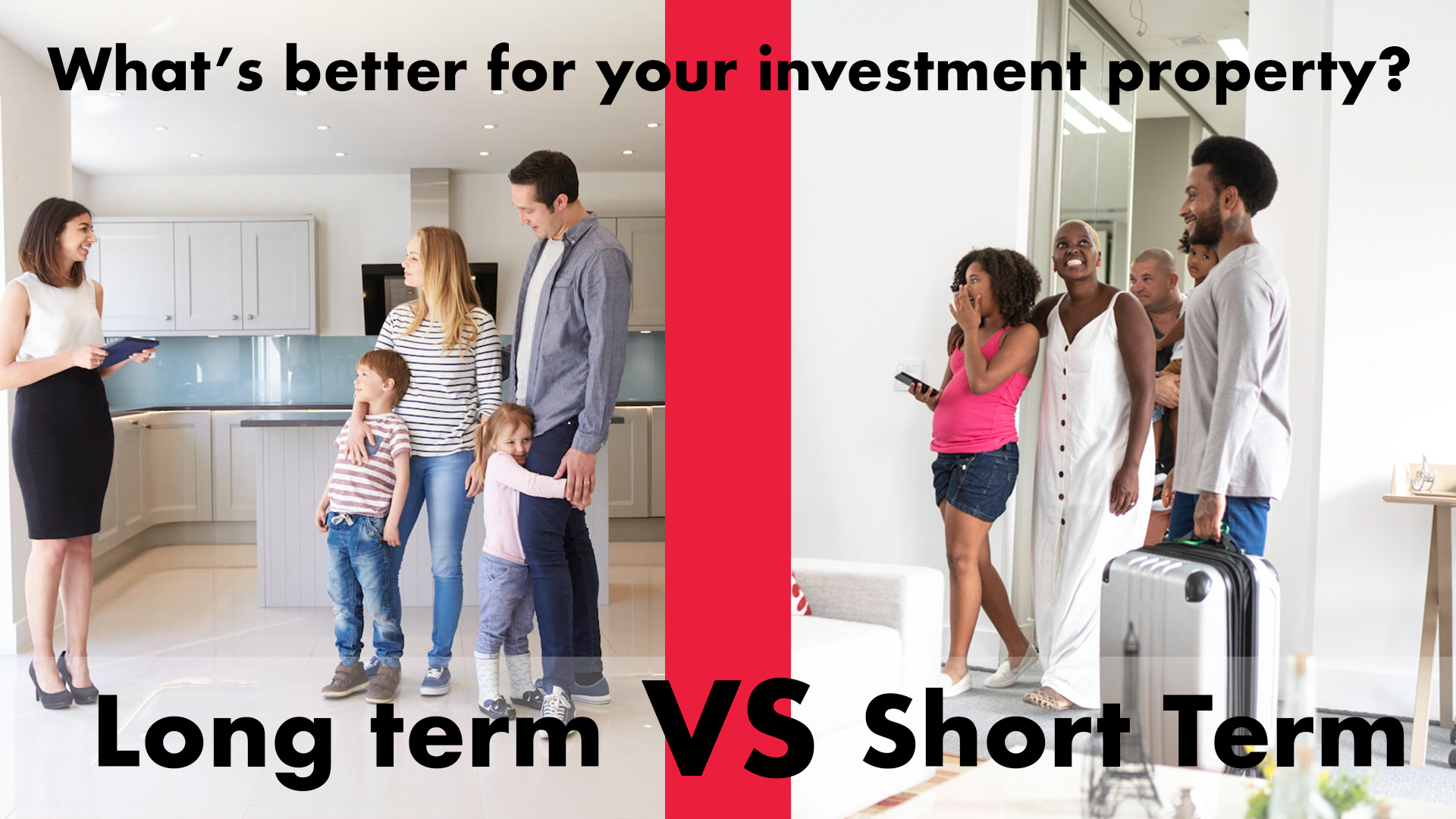Short-Term vs. Long-Term Rentals: Making Informed Decisions for Your Property

Investing in property is a rewarding venture, but it comes with critical decisions about how to manage your property. The standard Buy-To-Let approach has been around for decades, this is simply purchasing a property with a mortgage and putting in a tenant that covers the mortgage payments and (hopefully) a bit more. This might be the only option you may have considered, as it's typically just the way it's done.
However, with the ever changing market comes new opportunities that allow for a variety of different ways to get revenue from your property investment. In this article we'll be focusing on the differences between long terms rentals (standard AST's) and short term rentals which have immensely grown in popularity due to the ability to charge much higher rates to the temporary tenants who stay at short term rentals.
Both options have their advantages and disadvantages, and making the right choice depends on your goals, property type, and local market conditions. In this article, we'll compare the two strategies to help you make an informed decision.
Short-Term Rentals
Advantages:
- Higher Income Potential: Short-term rentals, such as those listed on Airbnb and other platforms, often generate significantly higher rental income per night compared to long-term rentals. This is especially true if your property is in a prime location or a popular tourist destination.
- Flexibility for Owners: Short-term rentals provide property owners with the flexibility to use the property themselves or for family and friends during vacant periods, allowing them to enjoy the property and generate income.
- Opportunity for Seasonal Pricing: You can adjust your rental rates based on seasonal demand, holidays, and special events, further maximising your income during peak periods.
- Tax Benefits: Depending on your location and tax laws, you may be able to deduct certain expenses related to your short-term rental property, such as cleaning, maintenance, and property management fees.
- Legal and Regulatory Challenges: Some areas have strict regulations on short-term rentals, which may require permits, limit rental periods, or impose taxes. Compliance can be complex and costly.
Disadvantages:
- Higher Management Effort: Managing short-term rentals can be time-consuming. You'll need to handle guest inquiries, bookings, check-ins, and check-outs, as well as address maintenance and cleaning between guests.
- Income Variability: Income can be inconsistent, with periods of high demand followed by lulls in bookings. This can make it challenging to predict your monthly income accurately.
- Additional Expenses: Short-term rentals often have higher operating costs due to frequent turnover, including cleaning fees and restocking essentials for guests and also higher start up costs.
- Legal and Regulatory Challenges: Although there isn't much regulation in the UK so far, some areas, such as London, have strict regulations on short-term rentals, which may require permits and limit rental periods. Compliance may be complex and costly.
Long-Term Rentals
Advantages:
- Steady Rental Income: Long-term rentals typically provide a consistent monthly income, making it easier to budget and plan for expenses.
- Lower Management Demands: With fewer turnovers, long-term rentals require less day-to-day management. You can establish long-term relationships with tenants, reducing the need for constant marketing and guest communication.
- Reduced Wear and Tear: Longer stays often mean less wear and tear on the property, reducing maintenance and repair costs.
- Stable Occupancy: Your property is more likely to remain occupied throughout the year, minimizing vacancies and income gaps.
Disadvantages:
- Lower Income Potential: Long-term rentals generally yield lower nightly rates than short-term rentals, resulting in a potentially lower overall income.
- Limited Flexibility: You may have limited access to your property during a long-term lease, reducing your ability to use it for personal purposes.
- Property Management Challenges: Long-term rentals still require management, including tenant screening, lease agreements, and property maintenance.
- Market Conditions Impact: Economic downturns or shifts in the local rental market can affect the stability of long-term rental income.
The decision between short-term and long-term rentals depends on your financial goals, property location, and your ability to manage the property effectively. Many property owners find success in a hybrid approach, offering short-term rentals during peak seasons and long-term rentals during slower periods to maximize income.
Before making a decision, carefully research your local market, assess your property's unique qualities, and consider your personal preferences and available resources. Additionally, consulting with a property management company that specializes in short-term or long-term rentals can provide valuable insights and assistance in navigating the complexities of the rental market.
In conclusion, there is no one-size-fits-all answer to the short-term vs. long-term rental debate. By understanding the advantages and disadvantages of each strategy and aligning them with your goals, you can make an informed choice that maximizes the potential of your investment property.
Click below to schedule a call to see how best we can help
Alternatively, get in touch below for more information and how we could help:
We will get back to you as soon as possible
Please try again later
Book in a Call
Compliance
Information Commissioners Office
Certificate Number: ZB563104
Property Redress Scheme
Membership No: PRS043753
Company Insurance: Simply Business
Policy No: CHBS4196840XB
Barhill Enterprises LTD t/a Stay Hosted | Registered Company in England and Wales: 12793135 | Registered with the ICO (Information Commissioner's Office) / Data Protection


